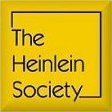|
|
|
- Barsoom
- The name for the planet Mars in the adventure series by Edgar Rice Burroughs. In the stories, Captain John Carter, of Virginia and the Confederate Army, is transported to a Mars inhabited by barbarians, monsters, and beautiful princesses.
- John Carter
- Hero of a series by Edward Rice Burroughs. A Captain in the Confederate Army, he is mysteriously transported to the planet Barsoom (Mars) where he has many adventures in an exotic civilization and marries a beautiful princess.
- Dejah Thoris
- A princess of Barsoom, whom John Carter marries.
- Pellucidar
- Prehistoric world inside the Earth, created by fantasy author Edgar Rice Burroughs. The adventures of David Innes and Abner Perry, who travel to the center of the earth in a "mechanical mole", are described in seven novels originally published as magazine serials: At the Earth's Core (serialized 1914), Pellucidar (1915), Tanar of Pellucidar (1929), Tarzan at the Earth's Core (1929–30), Back to the Stone Age (1937), Land of Terror (published as a novel in 1944), and Savage Pellucidar (1942).


